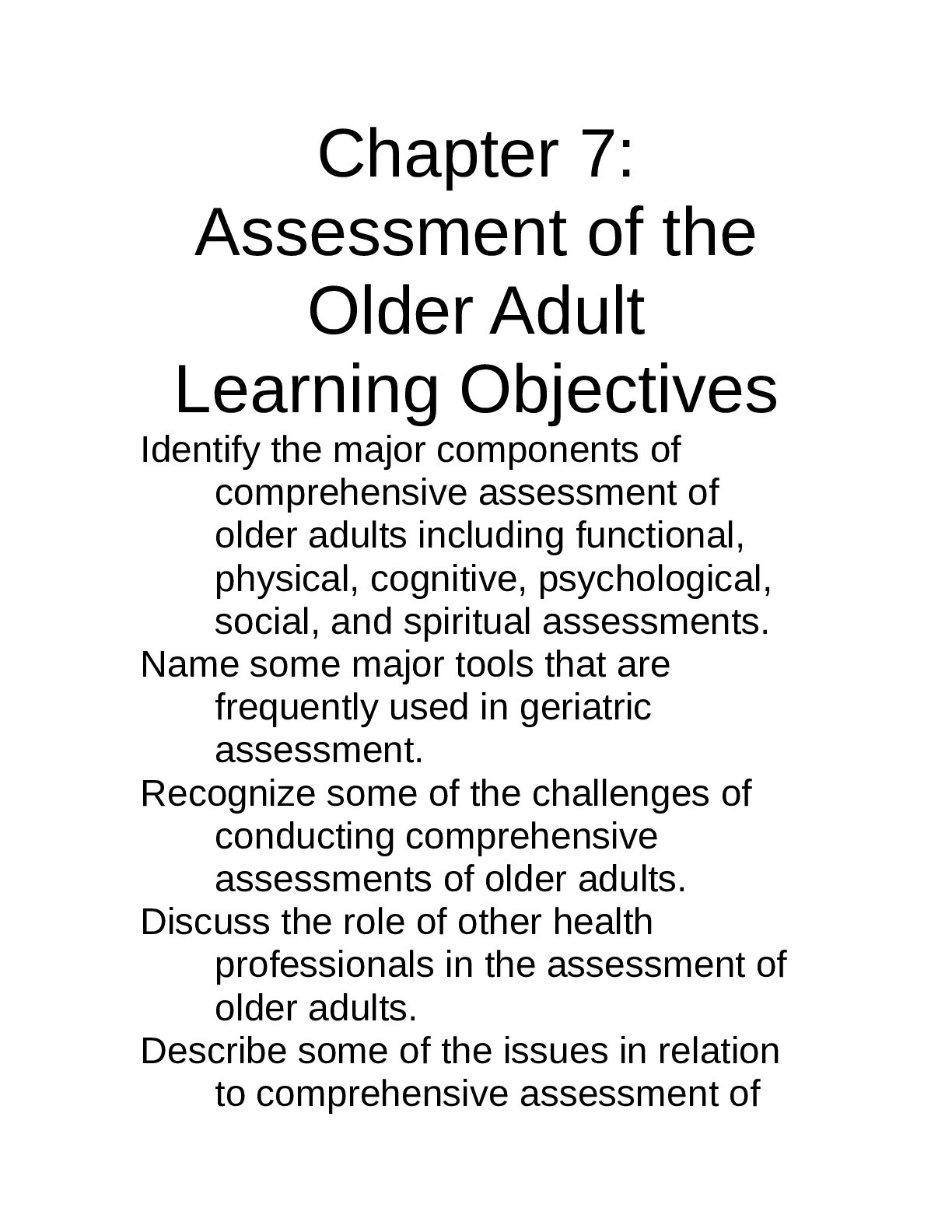All study resources > NURSING NURS 30632chap 7 outline (Nursing)
NURSING NURS 30632chap 7 outline
2. Comprehensive
assessment takes into
account age-related
changes, age-associated
diseases, heredity and
lifestyle.
Ten Principles of
Comprehensive Assessment:
(Cont’d)
3. Nurses are members of
the health care team,
contributing to and
drawing from the health
team to enhance the
assessment process.
4. Comprehensive
assessment is not a
neutral process.
Ten Principles of
Compre
...[Show More]
2. Comprehensive
assessment takes into
account age-related
changes, age-associated
diseases, heredity and
lifestyle.
Ten Principles of
Comprehensive Assessment:
(Cont’d)
3. Nurses are members of
the health care team,
contributing to and
drawing from the health
team to enhance the
assessment process.
4. Comprehensive
assessment is not a
neutral process.
Ten Principles of
Comprehensive Assessment:
(Cont’d)
5. Ideally, the older adult is the best
source of information to assess his
or her health. When this is not
possible, family members or
caregivers are acceptable and
secondary sources of information.
When the older adult cannot selfreport,
physical performance
measures may provide additional
information.
6. Comprehensive assessment should
first emphasize “ability” and second,
should address disability.
Appropriate interventions to
maintain and enhance ability, and to
improve or compensate for
disability should follow from a
comprehensive assessment.
Ten Principles of
Comprehensive Assessment:
(Cont’d)
7. Task performance and task
capacity are two difference
perspectives. Some
assessment tools ask “Do you
dress without help?’
(performance) while others
ask, “Can you dress without
help?” (capacity). Asking about
capacity will result in answers
that emphasize ability.
8. Assessment of older adults
who have cognitive limitations
may require “task
segmentation” or the breaking
down of tasks into smaller
steps.
Ten Principles of
Comprehensive Assessment:
(Cont’d)
9. Some assessment tools or parts of
assessment tools may be more or
less applicable depending on the
setting, that is, community, acute
care or long-term care settings.
10. In comprehensive assessment, it is
important to explore the meaning
and implications of health status
from the older adult’s perspective.
For example, the same changes in
visual acuity for two older adults
may have quite different meanings
and implications for everyday life.
Online Assessment
[Show Less]
